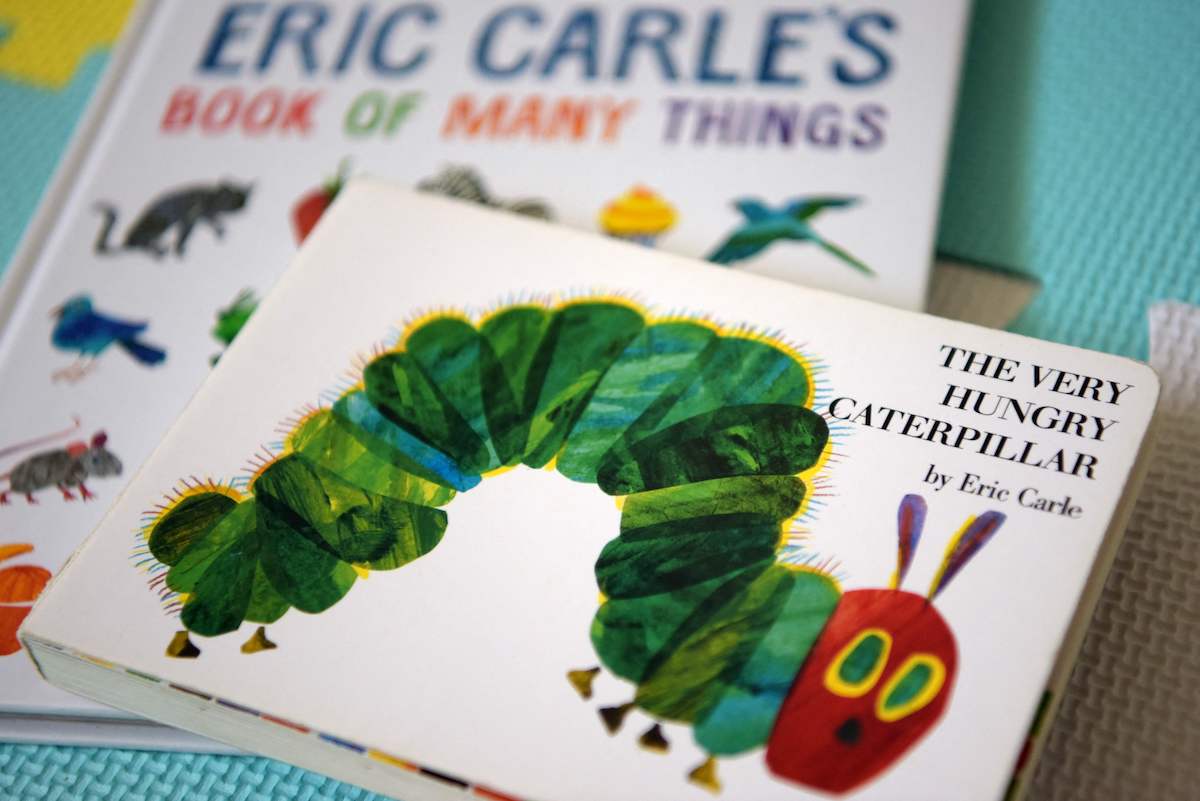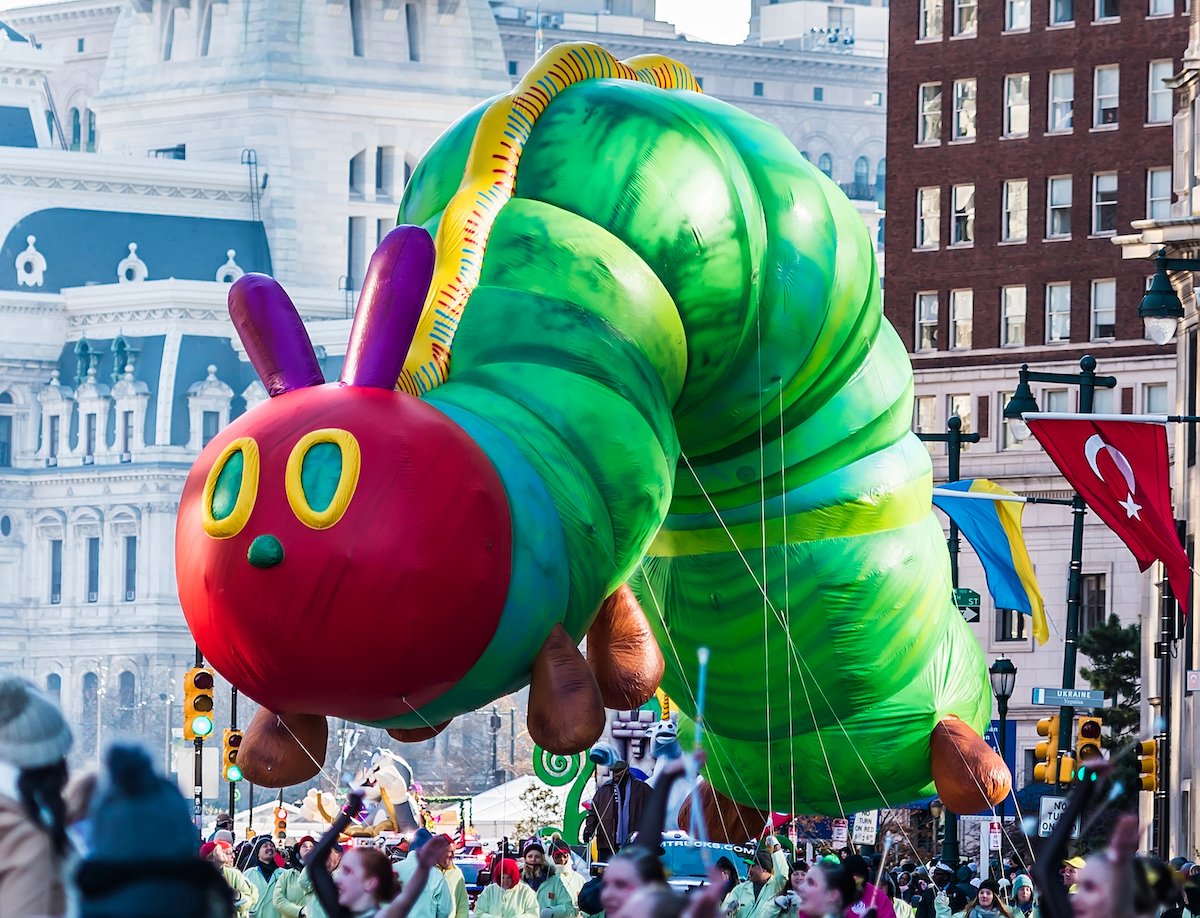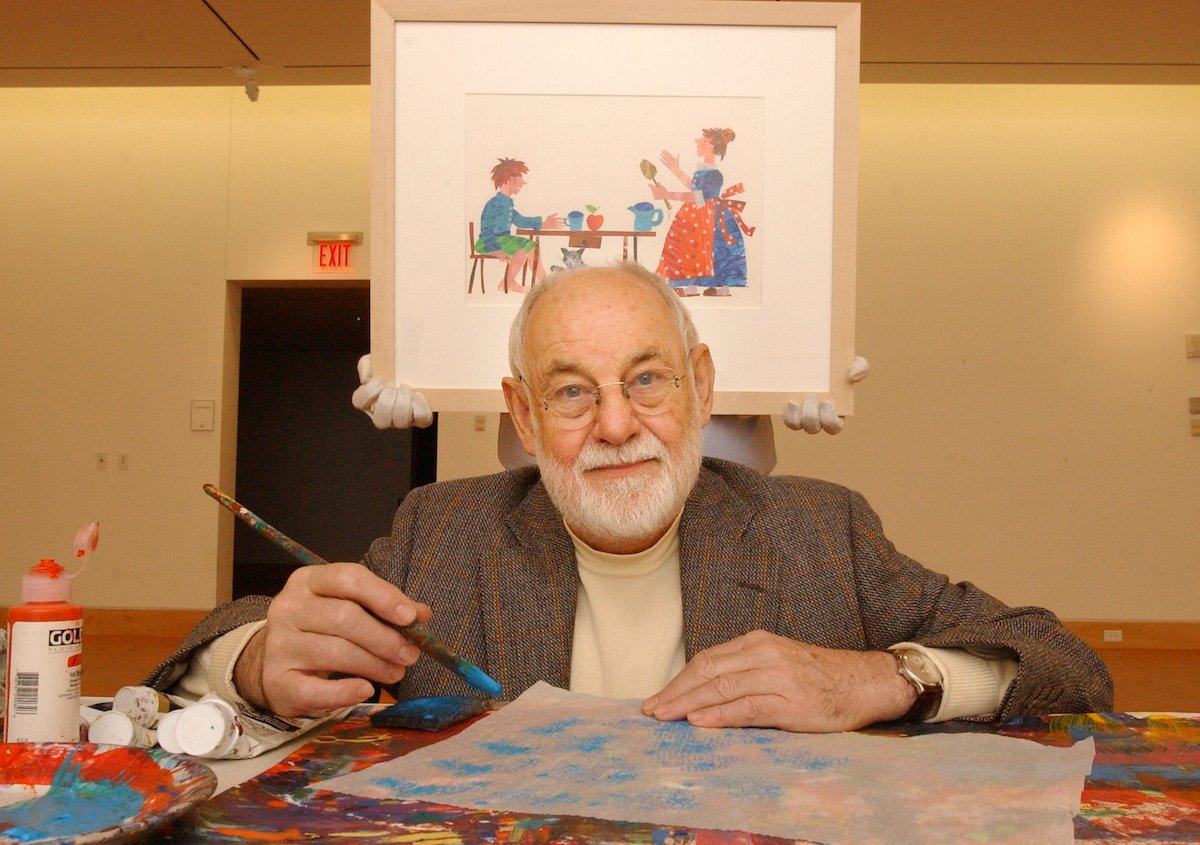‘The Very Hungry Caterpillar’ Author Eric Carle Was Upset the Publisher Made 1 Big Change to the Book
For over 50 years, The Very Hungry Caterpillar has entertained children everywhere thanks to its endearing story and timeless illustrations. The iconic children’s book written by the late Eric Carle taught children across generations about finding the beauty in yourself and projecting that confidence out into the world. But Carle himself wasn’t happy with how the book turned out.

‘The Very Hungry Caterpillar’ is a beloved children’s book
The Very Hungry Caterpillar begins with a baby caterpillar finding his way in the world around him. As his name implies, he’s a growing boy with a big appetite, and looks around for things to eat.
He starts with one apple on Monday, then two pears on Tuesday, then three plums on Wednesday, four strawberries on Thursday, and five oranges on Friday. His appetite continues to grow: on Saturday, he goes on an eating spree, devouring a piece of chocolate cake, an ice cream cone, a pickle, a slice of Swiss cheese, a slice of salami, a lollipop, a piece of cherry pie, a sausage, a cupcake, and a slice of watermelon.
That night the caterpillar gets a stomachache from overeating. The next day he eats one green leaf feels much better afterwards. He soon spins himself into a chrysalis and emerges two weeks later as a beautiful butterfly.

Eric Carle wanted to teach a lesson with ‘The Very Hungry Caterpillar’
While the message of The Very Hungry Caterpillar is about growing into the people that we dream of being, Carle wanted to deliver another message. He spoke about his experience with the book in a 2015 interview with The Paris Review.
“My publisher [World Publishing Company] and I fought bitterly over the stomachache scene in The Very Hungry Caterpillar,” he revealed.
“The caterpillar, you’ll recall, feasts on cake, ice cream, salami, pie, cheese, sausage, and so on,” he continued. “After this banquet I intended for him to proceed immediately to his metamorphosis, but my publisher insisted that he suffer an episode of nausea first — that some punishment follow his supposed overeating.”
“This disgusted me,” he said honestly. “It ran entirely contrary to the message of the book.”

Eric Carle didn’t believe in childhood obesity
Carle explained that the publishers were likely concerned about encouraging gluttony, but he didn’t believe that children should be concerned about such things.
“The caterpillar is, after all, very hungry, as sometimes we all are,” Carle said. “He has recognized an immense appetite within him and has indulged it, and the experience transforms him, betters him. Including the punitive stomachache ruined the effect. It compromised the book.”
“I don’t recognize childhood obesity,” he stated plainly. “No one should. I see children doing what they like, which is eating, and doing it without the shame or remorse later drilled into them by Judeo-Christian ethics.”


